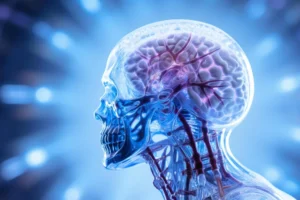 The autonomic nervous system (ANS) is responsible for regulating involuntary bodily functions such as heart rate, blood pressure, digestion, and respiratory rate. Disorders of the autonomic nervous system encompass a range of conditions that can significantly impact bodily functions.
The autonomic nervous system (ANS) is responsible for regulating involuntary bodily functions such as heart rate, blood pressure, digestion, and respiratory rate. Disorders of the autonomic nervous system encompass a range of conditions that can significantly impact bodily functions.
When the ANS malfunctions, it can lead to a variety of health issues known as disorders of the autonomic nervous system.
Today, we’ll explore the types, causes, symptoms, and management of these disorders.
Understanding the Autonomic Nervous System
The ANS consists of two main branches:
- the sympathetic nervous system, which prepares the body for fight or flight responses, and
- the parasympathetic nervous system, which promotes relaxation and conserves energy.
Dysfunction in either branch can lead to disruptions in bodily functions.
Types of Autonomic Nervous System Disorders
- Dysautonomia. This is a broad term used to describe disorders involving autonomic nervous system dysfunction. It can manifest in various ways, including orthostatic intolerance (inability to tolerate upright posture), gastrointestinal motility disorders, and disturbances in temperature regulation.
- Postural Orthostatic Tachycardia Syndrome (POTS). POTS is a type of dysautonomia characterized by an abnormal increase in heart rate upon standing up, often accompanied by symptoms such as dizziness, lightheadedness, and fainting.
- Multiple System Atrophy (MSA). MSA is a rare neurodegenerative disorder that affects the autonomic nervous system, leading to symptoms such as orthostatic hypotension (low blood pressure upon standing), urinary incontinence, and motor impairments resembling those of Parkinson’s disease.
Causes of Autonomic Nervous System Disorders
- Primary Dysautonomia. Some autonomic nervous system disorders are idiopathic, meaning their cause is unknown. Primary dysautonomias may result from genetic factors, autoimmune processes, or other underlying mechanisms.
- Secondary Dysautonomia. Secondary dysautonomias are caused by underlying medical conditions or external factors. Examples include diabetes mellitus, Parkinson’s disease, autoimmune disorders, and certain medications.
Symptoms of Autonomic Nervous System Disorders
- Orthostatic Symptoms. Symptoms that worsen upon standing up, such as dizziness, lightheadedness, fainting, and palpitations.
- Gastrointestinal Symptoms. Digestive issues such as bloating, constipation, diarrhea, nausea, and difficulty swallowing.
- Cardiovascular Symptoms. Fluctuations in blood pressure and heart rate, including orthostatic hypotension, tachycardia, or bradycardia.
Management of Autonomic Nervous System Disorders
- Lifestyle Modifications. Strategies such as increasing fluid and salt intake, wearing compression garments, and practicing gradual changes in position can help manage symptoms of orthostatic intolerance.
- Medications. Medications may be prescribed to regulate blood pressure, heart rate, and other autonomic functions. Examples include beta-blockers, fludrocortisone, and midodrine.
- Physical Therapy. Physical therapy and exercise programs tailored to improve cardiovascular fitness and muscle strength can help manage symptoms and improve quality of life.
Understanding the types, causes, symptoms, and management strategies for these disorders is essential for proper diagnosis and treatment. If you suspect you may have an autonomic nervous system disorder, consult a healthcare professional for evaluation and personalized care.
Picture Credit: Freepik
